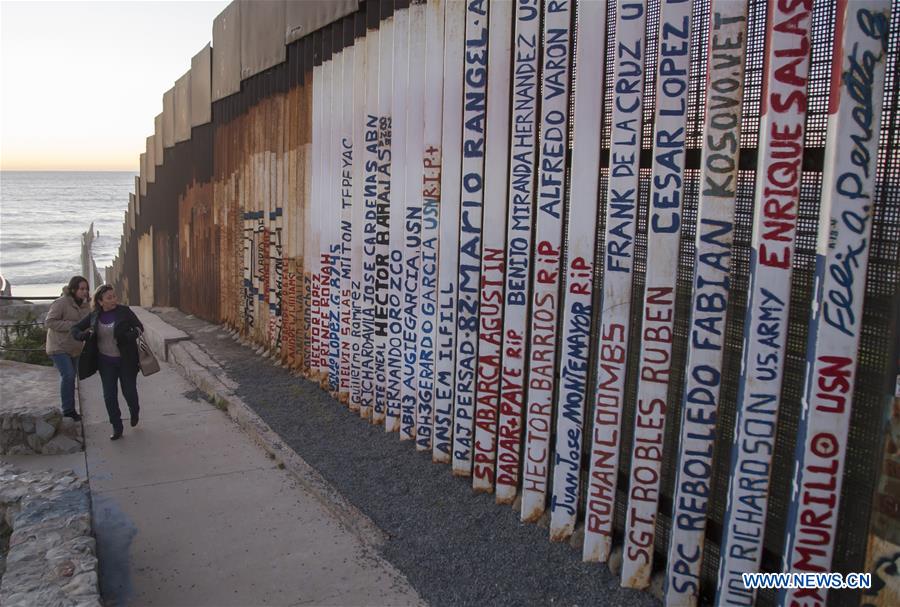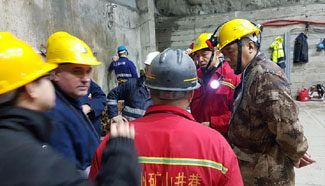
Image taken on Jan. 25, 2017, shows people watching a section of the border wall between Mexico and the United States, in Tijuana city, Mexico. U.S. President Donald Trump wants a 20-percent border tax on all imports from Mexico, said White House spokesman Sean Spicer on Thursday. (Xinhua/Str)
LIMA, Feb. 5 (Xinhua) -- U.S. President Donald Trump has a "confrontational" style of governing and his unilateral decisions are "bad measures," said Marco Carrasco, a Peruvian economist.
Sticking to his campaign promises, Trump has proven his willingness to go it alone, even that means going against the general consensus.
Just in the short time he has been in office, Trump has pushed the United States close to the brink of a constitutional crisis by flouting laws, and alarmed other countries with threats of trade wars and military incursions.
"They are bad measures, in my opinion, and seemingly in the opinion of most people, even in Washington," Carrasco said in a recent interview with Xinhua. "Let's hope certain things are toned down."
"One of the countries attacked by Trump has been Mexico, and beyond the wall...there are economic issues," said Carrasco, who has a master's degree in behavioral economics obtained at Paris-Sorbonne University.
Mexico, which shares a border with the United States and is its third largest trade partner, has borne the brunt of Trump's hostility toward globalization and free trade, and faces the prospect of being forced to pay for a border wall it does not want.
Any punitive trade measures are likely to first target the billions of dollars in remittances Mexicans working in the United States send back each year, as well as Mexico's oil industry that exports a large portion of its output to the United States, Carrasco said.
Mexico, Peru, among other Central American countries, have large numbers of migrants living in the United States, the economist said, adding that taxing remittances "is becoming a problem for all Latin American countries."
Trump also put renegotiating the North American Free Trade Agreement -- a 23-year-old trilateral accord between the United States, Mexico and Canada -- at the top of his agenda, saying he wants to secure better conditions for U.S. industry and workers.
That objective could spell trouble for Mexican producers, as "it puts various obstacles to Mexico's access of the U.S. market," said Carrasco.
Trump is expected to make other unilateral decisions on international accords signed by the United States.
"The United States is going to want to unilaterally change these things (accords) to protect its workers, because the U.S. labor force has been affected by the entry of foreign labor that earns lower wages," said Carrasco.
Trump's policies "are going to force Mexico to rethink to what degree it benefits from strengthening ties with the United States...it is going to begin to seek new markets," said the economist.
In fact, Mexico has announced it will work to diversify its export markets and bolster its relationship with the rest of Latin America, Asia and Europe.
"Given the outlook, the Asian market emerges as an alternative," said Carrasco.










